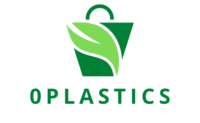In the dynamic realm of plastic-free marketplaces, innovation takes center stage as brands and entrepreneurs strive to redefine the way consumers interact with products. These platforms serve as showcases for cutting-edge solutions that not only eliminate or minimize plastic usage but also inspire a shift towards more sustainable living. Let’s explore some of the innovative products that are making waves on plastic-free platforms, shaping a future where environmental consciousness meets consumer convenience.
1. Beeswax Food Wraps:
Beeswax food wraps have revolutionized food storage by offering a sustainable alternative to plastic wrap. Made from cotton infused with beeswax, these wraps are malleable and can be molded around food items or containers. They are reusable, washable, and biodegradable, providing a versatile and eco-friendly solution for preserving food without resorting to single-use plastics.
2. Plant-Based Bioplastics:
Traditional plastics are derived from fossil fuels and contribute significantly to environmental pollution. Plant-based bioplastics, on the other hand, are derived from renewable resources such as corn, sugarcane, or potato starch. These bioplastics offer similar functionalities to traditional plastics but decompose more rapidly, reducing the long-term environmental impact.
3. Bamboo Toothbrushes:
Bamboo toothbrushes have emerged as a sustainable alternative to conventional plastic toothbrushes. The handles are made from bamboo, a fast-growing and renewable resource, while the bristles are often composed of biodegradable materials. By replacing the non-biodegradable plastic handles of traditional toothbrushes, bamboo toothbrushes contribute to a reduction in plastic waste.
4. Stainless Steel Straws:
Single-use plastic straws have faced increasing scrutiny due to their environmental impact. Stainless steel straws offer a durable and reusable alternative. These straws are not only long-lasting but also resistant to corrosion and easy to clean. They come in various sizes and styles, providing a stylish and sustainable choice for consumers who enjoy using straws.
5. Compostable Phone Cases:
Phone cases are ubiquitous accessories, but their environmental footprint can be significant. Compostable phone cases are made from materials like plant-based bioplastics or even compostable polymers, ensuring that they break down in composting conditions. These cases provide device protection without contributing to the persistence of plastic waste.
6. Water-Soluble Packaging:
Water-soluble packaging is a cutting-edge solution that addresses the challenge of excess packaging waste. Made from materials like PVA (polyvinyl alcohol), these packages dissolve in water, leaving no trace of plastic behind. This innovation is particularly valuable in reducing single-use plastic packaging for products like detergent pods or single-serving condiments.
7. Reusable Produce Bags:
Single-use plastic bags for fruits and vegetables contribute to plastic pollution. Reusable produce bags made from materials like organic cotton or recycled PET offer a sustainable alternative. These bags are lightweight, durable, and machine-washable, providing a convenient and eco-friendly option for shoppers.
8. Edible Cutlery:
Edible cutlery is an innovative response to the issue of disposable plastic utensils. These utensils are typically made from edible ingredients like sorghum, rice, or wheat, making them not only biodegradable but also edible. Edible cutlery presents a creative solution to the problem of single-use plastic utensils in takeaway food service.
9. Silicone Food Storage Bags:
Silicone food storage bags are a reusable and eco-friendly alternative to traditional plastic bags. Made from food-grade silicone, these bags are durable, dishwasher-safe, and suitable for storing a variety of food items. They eliminate the need for disposable plastic bags and contribute to reducing plastic waste in the kitchen.
10. Refillable Beauty Products:
Refillable beauty products are gaining popularity on plastic-free platforms. Brands offer skincare and personal care items in reusable containers, encouraging customers to purchase refills rather than new packaging. This approach minimizes the environmental impact associated with traditional single-use plastic beauty product packaging.
These innovative products exemplify the commitment of plastic-free platforms to providing sustainable alternatives that not only meet consumer needs but also contribute to a healthier planet. By showcasing and promoting these cutting-edge solutions, plastic-free marketplaces play a crucial role in driving change and inspiring consumers to adopt a more sustainable and eco-conscious lifestyle.
